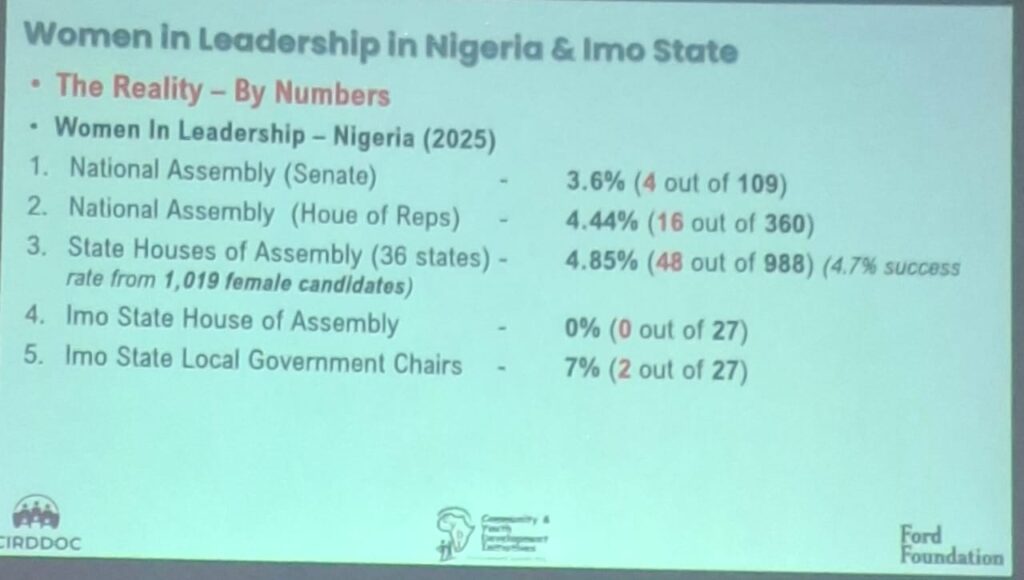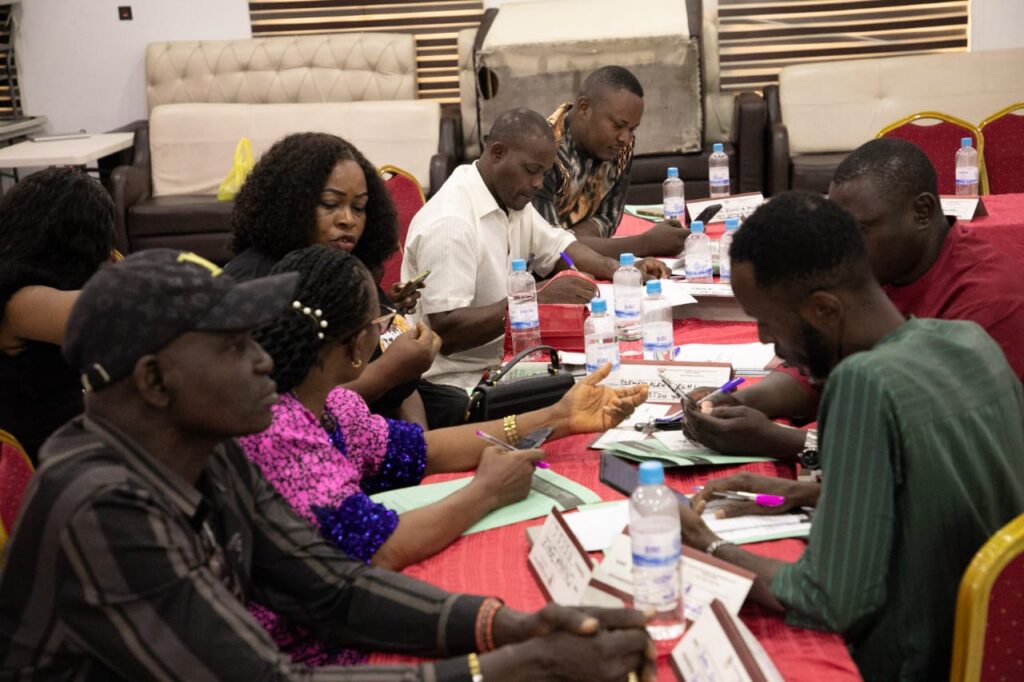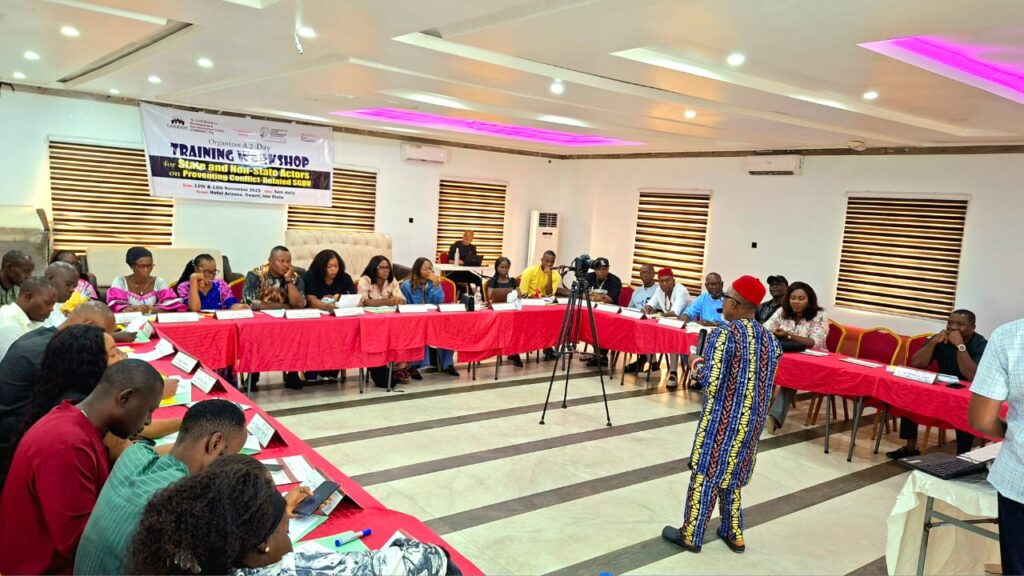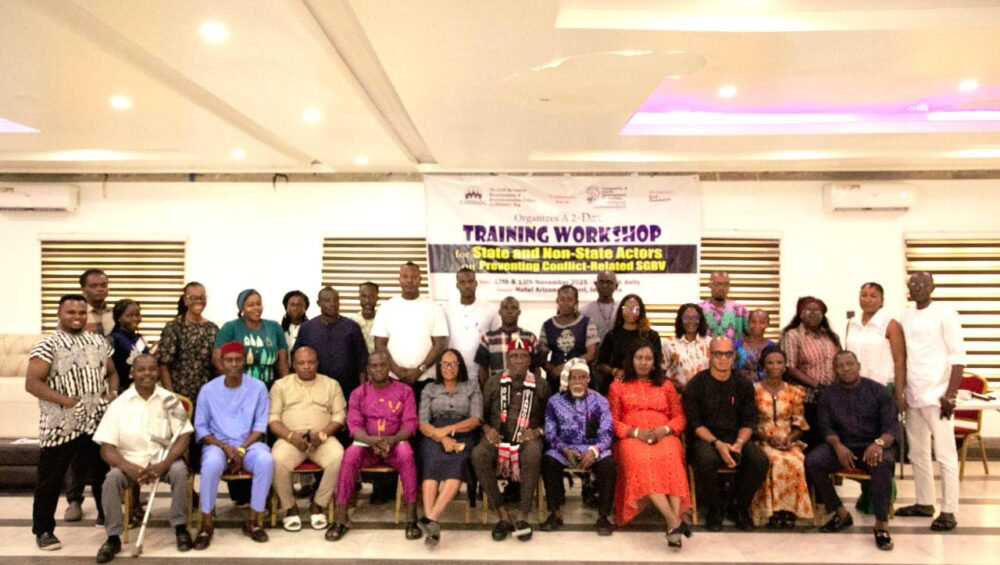By: Harriet C. Ijeomah
To reduce the growing risk of conflict-related sexual and gender-based violence in crisis-prone communities across Nigeria, the Civil Resource Development and Documentation Centre (CIRDDOC) Nigeria, in partnership with the Community and Youth Development Initiatives (CYDI) Funded by Ford Foundation, held a two-day capacity-building workshop for state and non-state actors in Imo State on November 12 and 13, 2025.
The training brought together security agencies, community leaders, health workers and civil society actors, but one message echoed throughout the hall: Nigeria cannot end SGBV without including more women in leadership.
According to the World Economic Forum’s 2024 Global Gender Gap Index, Nigeria ranks 133 out of 146 countries, with women holding less than 10% of political leadership positions nationally. In many rural communities, the numbers are even lower, with most key decisions security, land, conflict resolution still made without women at the table. Facilitators stressed that this exclusion fuels environments where abuses, silence, and impunity thrive.

During the sessions, facilitator Benjamin Mbakwem walked participants through the provisions of the Imo State Violence Against Persons Prohibition (VAPP) Law 2021, explaining how stronger community leadership, especially leadership that reflects women’s lived realities remains central to preventing and responding to violence. The discussions linked gender equity, human rights and cultural norms directly to the vulnerability many women and girls face during crises.
CIRDDOC Programme Officer, Paschal Anosie explained that the project was designed in two phases: first, to expand community awareness on the different forms of SGBV and the trauma they leave behind; and second, to strengthen coordination among responders. He emphasized that communities must not only detect violations early but also ensure women are part of decision-making structures that protect vulnerable groups before harm occurs.

For many participants, the workshop challenged long-held assumptions. Health practitioner, Johnson Assumpta said the sessions opened her eyes to the scale of SGBV and the silence that surrounds it. She recounted how victims often avoid hospitals and police stations because they expect to be dismissed or blamed. She said the training gave her a new understanding of victims’ rights and the importance of reporting violations promptly and correctly. What struck her most, however, was the discussion on women’s leadership.
“Women are the homemakers and peacemakers,” she said. “When women’s voices are included in leadership, communities become safer. We know what our children, our neighbors, and the vulnerable in our communities face. When women are at the table, peacebuilding becomes real.”
CSC Peace Onunwa of the NSCDC echoed the need for stronger gender-responsive structures, noting that the training has reinforced the Corps’ commitment to fully implement the VAPP Law across all 27 LGAs. She said the Gender Unit would intensify its community engagement, working closely with local leaders especially women to improve reporting and survivor support.

At the end of the workshop, participants developed detailed action plans to prevent conflict-related SGBV and promote inclusive leadership. Many argued that excluding women from community power structures weakens early-warning systems, limits trust in authorities, and results in decisions that overlook the safety needs of women and girls.
They noted that when women participate in traditional councils, village assemblies and security committees, communities benefit from better reporting pathways, stronger mediation processes, and a culture that challenges harmful norms rather than quietly maintaining them.
The Executive Director of CYDI, Felxfame Enisire, expressed optimism that these commitments would strengthen grassroots peacebuilding and deepen the implementation of the Imo VAPP Law. He said communities become safer when women are recognized not as passive beneficiaries, but as active partners shaping the systems that prevent violence.





